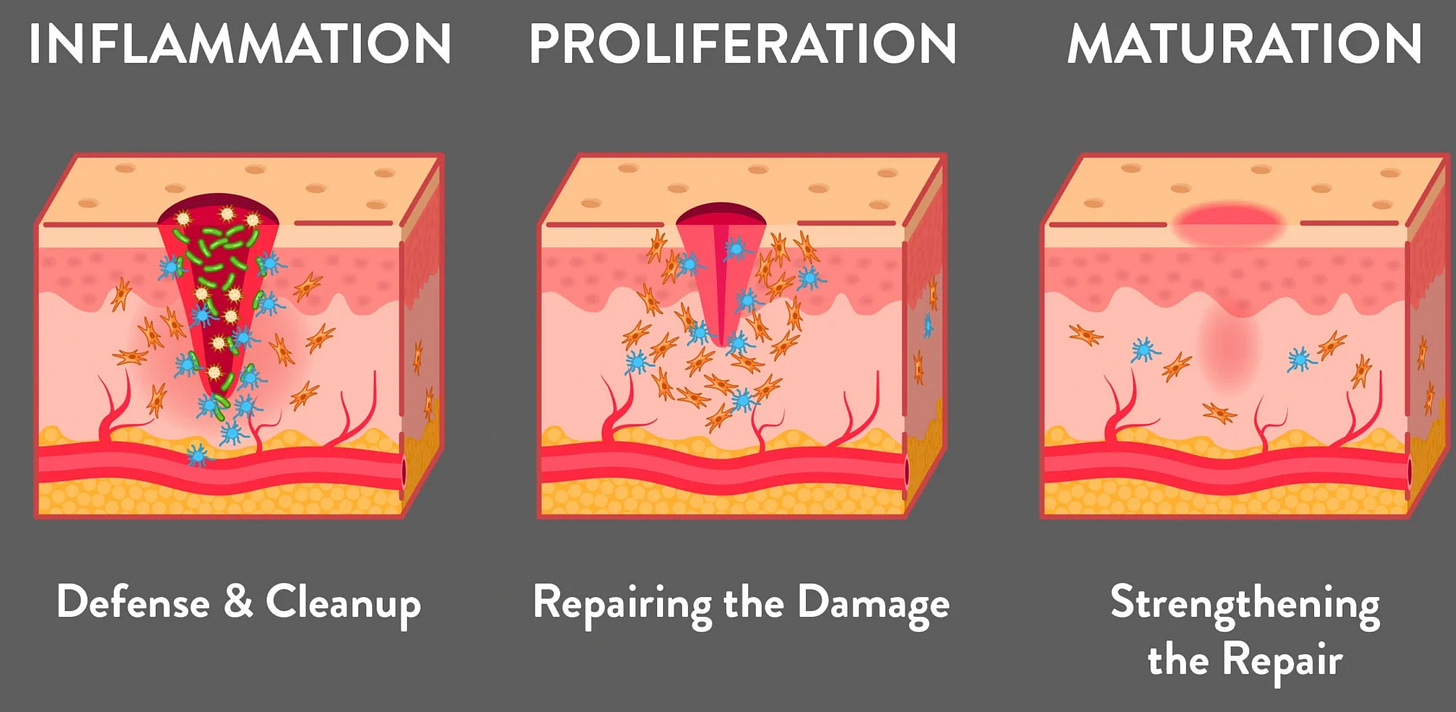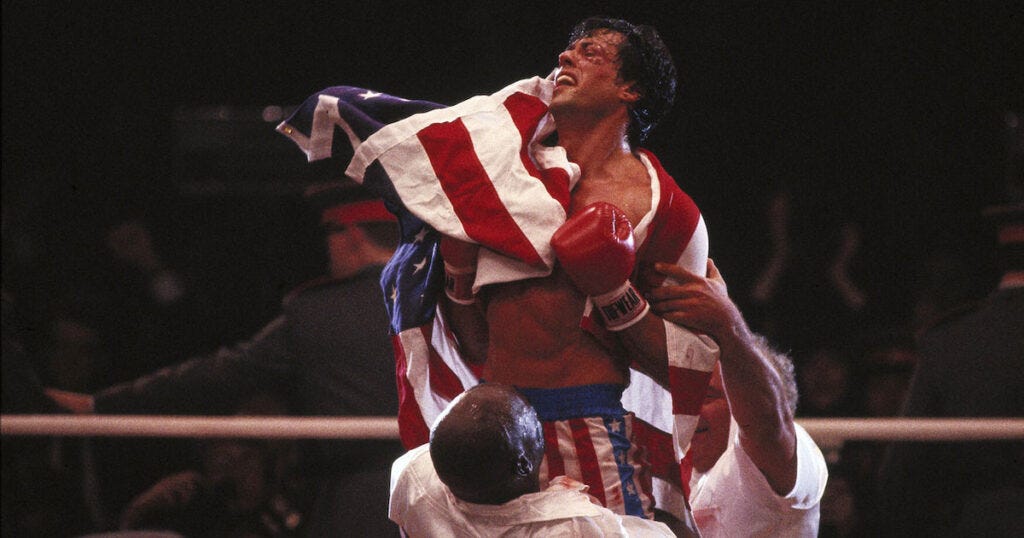Your Guide for Emotional Recovery
From burnout, toxic relationships, addictions, and society
As I take stock of all my experiences this year, I find myself in need of a lot of physical and emotional recovery.
re·cov·er /rəˈkəvər/ verb
1- return to a normal state of health, mind, or strength.
"Neil is still recovering from burnout"
2- find or regain possession of (something stolen or lost).
"Sarah recovered her sense of Joy"
The past 12 months have been the hardest of my immigration journey thus by far: Barely avoiding bankruptcy, metabolizing my divorce, driving Uber, dog sitting, farming, serving on meditation retreats, constant rejections, and living in 14 homes.
I felt oddly content and engaged during these experiences. I would laugh when people said: “What! You are a medical doctor and you’re doing…this?”
Today I write ‘this’ from a beautiful home in San Rafael. For the first time in a year, I have a safe and comfortable home that I don’t need to move from, my coaching practice The Human Dash is growing, my community is thriving and I can finally breath again.
However, I am experiencing a very peculiar feeling: All the wounds I have accumulated last year and all the other scars that have not aged well, are coming back to haunt me.
By the way, if this applies to you and you live in the Bay, I am interviewing psychiatrist and navy veteran, Dr. Andrew Chacko, for one last live podcast episode in SF titled‘ How to Stop Beating Yourself Up’ tomorrow at 7 pm. RSVP here. Join us for our last episode of the Season!
Suddenly, the joke about me being a doctor who is barely surviving is not so funny anymore.
It has always baffled me why depression comes to me at times of peace rather than when things are hard. I now realize that as long as I am in fight/flight mode, my nervous system could not allocate resources towards healing. It is only when I go into rest and digest mode, can I start tending to the wounds I have accumulated.
“Trauma is not what happens to you; Trauma is what happens inside of you, as a result of what happens to you.” Gabor Mate
That’s when I receive an invoice from the central nervous system’s accountant: “Sir, you owe us 600 hours of sleep, 45 massages, and please no more coffee for the next two weeks. Otherwise we will torture you with loopy negative thoughts until you comply”.
Somehow healing and recovery (especially in more progressive places like the Bay Area) have become associated with colorful Aladdin pants, the hang drum, essential oils and hopeful mantras such as “I am beautiful,”, “I am healed” and, “I am light”.
Ultimately, we return to work after expensive retreats to realize that our patterns are still the same. The same goes for endless talk therapy.
So today I want to take a closer look at Emotional recovery, inspired by how wounds heal.
What if recovery is not such a passive and expensive process?
Here is today’s better perspective: Emotional recovery is an active and uncomfortable process requiring intention and resources and may take up to several years to heal properly. Oh…and you can measure it!
The Three Stages of Wound Healing
Before we dig into more practical and evidence-based methods for emotional recovery, let’s look at how the body does it with actual physical wounds first.
One of the first things they taught me during my surgery internships are the body’s stages of wound healing.
When the body heals from a wound (be it surgical or traumatic), it goes through three very distnict phases:
1- Inflammation (days): The body is alarmed and blood rushes to bring the necessary resources to the site of the wound to clean it up, kill bacteria, and stop the bleeding.
2- Proliferation (weeks): New tissue starts building in place of the old dead cells to cover the wound with new collagen and blood vessels.
3- Remodeling/Maturation (months & years): To stand the test of time, the body continues to produce collagen to strengthen the new tissue, if more collagen is produced.
Notice how that last phase of maturation may take years to be complete. That is when most of us get tired of the process, but in order to heal like a champ, you have to keep going at it, with patience, over and over again until you can get back on your feet.
Think of yourself as Rocky Balboa, recovering, training, practicing, and prevailing despite failures, setbacks and losses.
Then, one day, you’ll recover.
***Cue Eye of the Tiger***
While corporations convince us that they are our “family”, politicians tell us that we are just “too lazy”, doctors tell us to “stop smoking and avoid stress”, and the wellness industry convinces us that “eating an apple a day” can keep those fatal healthcare bills away, we continue beating ourselves up and continue growing the false belief of: “I am not doing enough”.
That thought, is the wound.
Here is how to heal it.
“Risin' up, back on the street
Did my time, took my chances
Went the distance, now I'm back on my feet…”Survivor
The 3-step Guide to Emotional Recovery
Emotional re-”cover”-y is the act of peeling off these layers that we’ve developed, cleaning up the wound, and recreating a new coating that allows us to have a more peaceful existence, with more vibrant work and personal relationships.
In this guide, I cover emotional and psychological healing inspired by the body’s natural rhythm:
Stage 1: Inner work and Inflammation - Techniques such as Somatic Therapy, Internal Family Systems, Psychedelics, Intergenerational Trauma
Stage 2: Habit Building and Proliferation - How do we start addressing exercise, sleep, stress/anxiety, relationships, addiction, and nutrition in a way that promotes recovery and does not stress us even more?
Stage 3: Data gathering for long term Reinforcement - What subjective and objective measures can we track for healing?
This guide is available for paid members today, and available to Free members 1 month from now (you’ll be notified). Be the first to read my monthly guides, attend our monthly health zoom calls with various health experts, and get free tickets to our in person show by becoming a paid member. Thanks for your support!
Stage 1: Inner Work - aka Inflammation and Resourcing.
When recovering from major lifetime events, the healing process of the mind starts with inflammation. Similar to how the body works, this phase includes acute and focused “resourcing” of the mind to deal with the wound.
Here are a few methods that are helpful in this stage. I will dig further into each of these methods in separate essays but here is the gist of each.







